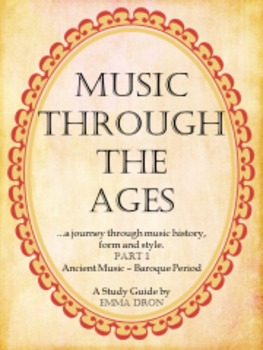
Music became commonplace amongst just about every public event during this time period and the social aspect of music was flourishing.Īlbums were originally created in the early 20th century, but it wasn’t until The Beatles in the 1960’s that they really started to catch on in the “ LP” (long play) format that we know today. You could discovery the latest lyre (aka kind-of like a harp), aulos (aka recorder), and syrinx (aka panpipe) music at celebrations, groups marching through the streets as a komos (band of revellers), religious events, women playing stringed instruments and reciting poems in their homes, Athens schools, and competitions. Music was an essential pillar of Ancient Greek life and you’d hear it all the time. You discovered music solely from the folks around you and began to define who you were as a tribe.įast forward to Ancient Greece where the students were taught music at an early age. The oldest instrument ever discovered dates back to as 43,000+BP and back then… there weren’t any viral dances to the latest bone flute hit. Let’s take a stroll through history and figure out how we got to where we are.Įvery single known culture in the world partakes in music. Music is tribal, event-driven, visual, and constantly changing. Many of these modern discovery options implement the key aspects of music beautifully. Today we have music-driven social media platforms such as TikTok, amazing streaming services such as Spotify, unique music discovery curators such as the Album Daily newsletter, and a plethora of other options to discover music. How did we get here? Music discovery has changed immensely through the ages and, for better or worse, we’re now more reliant than ever on algorithms to pick out that next track for us to discover.ĭoes that feel right? What are all the ways that you discover music? If you’ve ever been on Twitter, you’ve probably seen someone either praise their Spotify Release Radar, or complain that the playlist built off of their own music tastes isn’t hitting right this week.

If you’re the type of person that gets tired of your same old playlists and is always on the hunt for new music you’re in the right place. Our online platform, Wiley Online Library () is one of the world’s most extensive multidisciplinary collections of online resources, covering life, health, social and physical sciences, and humanities.Do you take your music discovery seriously? With a growing open access offering, Wiley is committed to the widest possible dissemination of and access to the content we publish and supports all sustainable models of access. Wiley has partnerships with many of the world’s leading societies and publishes over 1,500 peer-reviewed journals and 1,500+ new books annually in print and online, as well as databases, major reference works and laboratory protocols in STMS subjects. Wiley has published the works of more than 450 Nobel laureates in all categories: Literature, Economics, Physiology or Medicine, Physics, Chemistry, and Peace. has been a valued source of information and understanding for more than 200 years, helping people around the world meet their needs and fulfill their aspirations.
#Music through the ages professional
Our core businesses produce scientific, technical, medical, and scholarly journals, reference works, books, database services, and advertising professional books, subscription products, certification and training services and online applications and education content and services including integrated online teaching and learning resources for undergraduate and graduate students and lifelong learners. Wiley is a global provider of content and content-enabled workflow solutions in areas of scientific, technical, medical, and scholarly research professional development and education.

#Music through the ages full
The electronic version of History and Theory isĪuthorized users may be able to access the full text articles at this site.


#Music through the ages archive
JSTOR provides a digital archive of the print version of History and Natural and social sciences, the humanities, and psychology. Of humanity-in-time related disciplines, interactions between history and the Marxism, deconstruction, gender theory, psychoanalysis time and culture, conceptions Theoretical dimensions of historians' debates history of historiography, theoryĪnd practice of past historians and philosophers of history historical methodology,Įxamination of texts and other evidence, narrativism, stylistics critical theory, Speculative philosophy of history, comparative and global history historiography, Publishes articles, review essays, and summaries of books principally in theseĪreas: critical philosophy of history, cause, explanation, interpretation, objectivity History and Theory is the premier international journal in the field


 0 kommentar(er)
0 kommentar(er)
